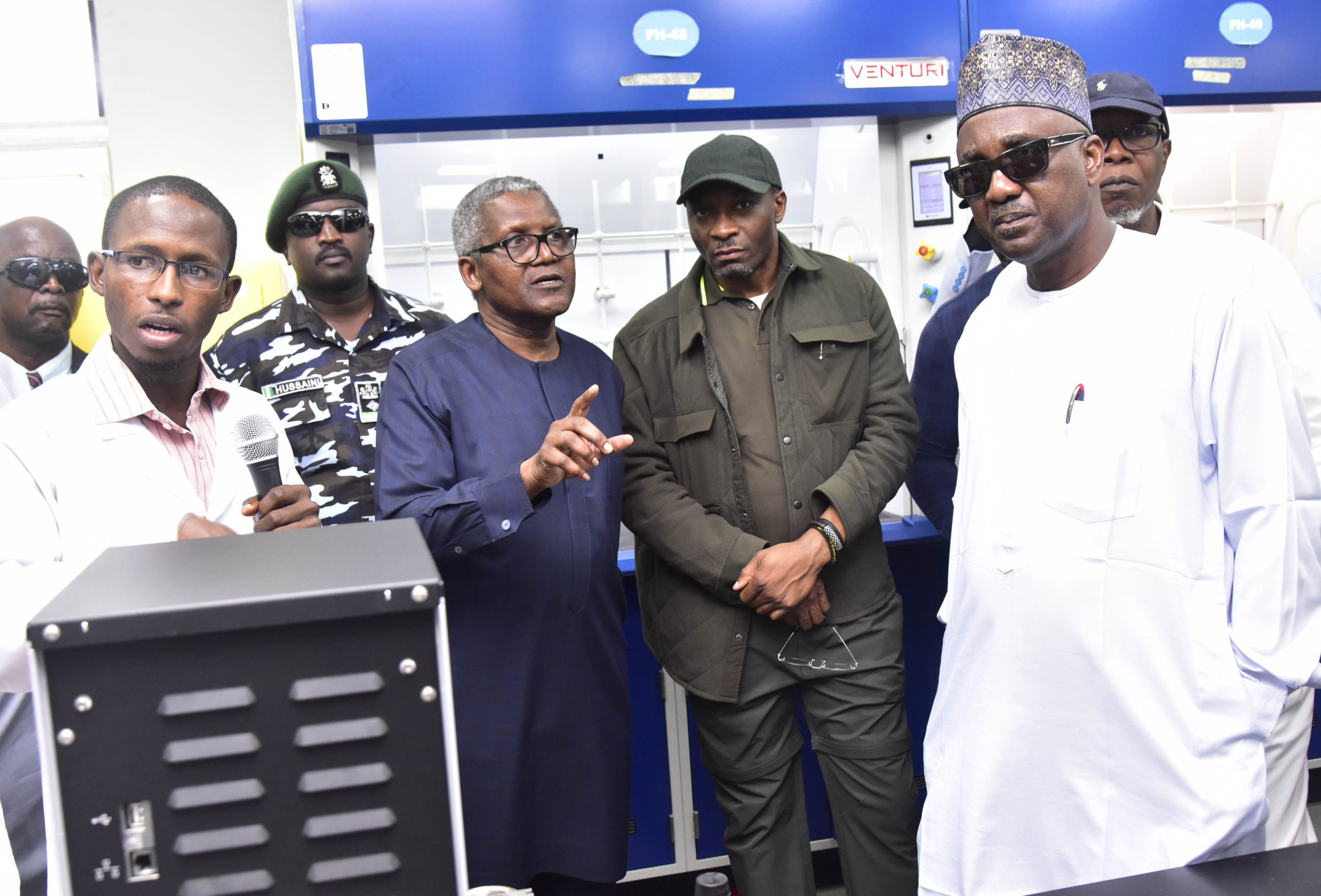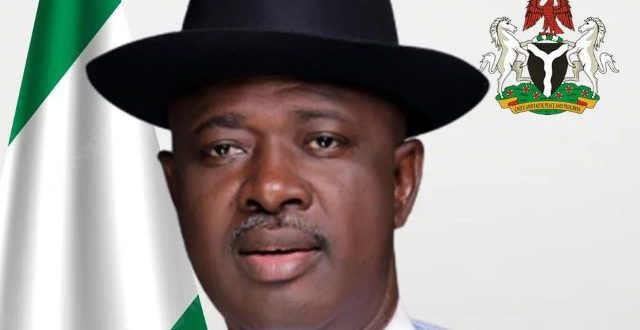Opinion/Feature
NNPC Vs Dangote – Where The Truth Lies

By Azu Ishiekwene
“The whole show leaves a bitter, corrosive aftertaste of sulfurous proportions. Dangote has been accused of many things.”
Africa’s richest man, Aliko Dangote, is not a stranger to adversity or its more sinister cousin, sabotage.
One of the bitterest battles he has fought in the last 25 years—the cement war — was against his kinsman and founder of BUA Group, Abdulsamad Rabiu. Folks close to both men have tried to patch them up, but the embers are still smouldering.
Dangote’s face-off with the Kogi State government under former Governor Yahaya Bello over rights and royalties from Dangote Cement, Obajana, for the local community, was a skirmish compared to the cement war with Rabiu.
Wealth and comfort can be strange bedfellows, often mutually exclusive in the quest to conquer one mountain after the other. Dangote knows this only too well. And nowhere has the lesson been more evident than his pursuit to own a refinery.
Just like that?
I told this story before in an article in May 2023. In the twilight of the ex-President Olusegun Obasanjo administration, the government sold off two of Nigeria’s moribund refineries — Port Harcourt and Kaduna — to Blue Star, a Dangote-led consortium. Blue Star paid $670 million for the plants and walked away, thinking the deal was done. It wasn’t.
ALSO READ: BREAKING: Senator Sani Describes Dangote, NNPC Faceoff As Rofo-Rofo Fight
In 2007, the government of Umaru Musa Yar’Adua capitulated. It refunded Dangote under pressure from labour unions and vested interests in the refineries on the excuse that the assets were “national patrimony” that should not be sold, “just like that!” It didn’t matter that at the time of sale, both refineries produced less than 20 per cent of capacity without hope or promise of improvement.
Dangote took his money and walked away, bruised but unbowed. Six years later, he announced plans to build a private refinery, first in Ogun state, and later, he moved it to Lagos with a capacity of 650,000 bpd—over 200,000 more than the installed capacity of Nigeria’s four refineries combined.
Single train revenge
Dangote’s single-train refinery, originally estimated to cost $12 billion but finished at around $20 billion, is now at the centre of another storm. It’s not about International Oil Companies (IOCs) he accused of trying to undermine him. It’s the more deadly variety of wars: the one from within.
The regulators, particularly the head of the Nigerian Midstream and Downstream Petroleum Regulatory Authority (NMDPRA), Farouk Ahmed, said in a television interview in the State House with the NNPC Group CEO, Mele Kyari, present, that Dangote Refinery was making products with unsafe Sulphur levels, and also trying to monopolise the industry.
Ahmed can raise valid safety concerns as a regulator and call out a monopoly. The Petroleum Industry Act (PIA) provides safety standards and a price reflexive framework to prevent a monopoly. Under the Act, the regulator is empowered to act in the interest of consumers and fair play.
Sulfurous things and backstory
Ahmed didn’t say precisely what the tolerable sulphur level was or provide evidence that Dangote was trying to become a monopoly. Instead, he contradicted himself by mentioning at least two other refineries, Waltersmith and Aradel, operating at different capacities. If this were a chat in a beer parlour, it would be pardonable.
But to think that the head of a regulatory agency will level an accusation of unsafe sulphur levels and offer no response when he was told that neither his agency nor the NNPC had a laboratory is scary. I’m not sure why Kyari stood beside him, grinning. Or why the State House posted the video on its official handle.
But the whole show leaves a bitter, corrosive aftertaste of sulfurous proportions.
Dangote has been accused of many things. He has been accused of feeding off government indulgences, from waivers to tax breaks and preferential forex allocations, even though he was not the only beneficiary. Even the 20 per cent stake in the Dangote Refinery, which we are now told the government paid only 7.2 per cent, left many questions about that transaction needing to be answered.
On another front, some have accused Dangote of hedging his bet poorly in the 2023 election that brought President Bola Ahmed Tinubu to power, unlike his adversary, Rabiu, who appears to have hit the bull’s eye.
Unkindest cut
But none of these charges is as unkind as those of Ahmed, who, if shame still means anything, should not have uttered the first letter of the ‘s-word’, never mind the phrase “sulphur levels.” I’m not sure he can find his way to a viable lab owned by NMDPRA or NNPC because there isn’t one. The regulators rely on third-party labs in Lagos, such as GMO, Sewort, SGS, and others, to vet its imported petroleum products.
Yet, Ahmed chooses to publicly discredit, without proof, products that we are told have been repeatedly ordered by TotalEnergies and BP, among others.
In response to a question from a LEADERSHIP reporter on Tuesday about whether NNPC has a lab, the corporation said, “NNPC conducts rigorous testing on all its products to ensure they meet global safety and quality standards,” adding that NMDPRA can provide verified data through regular official reports. What does that mean in English?
A regulator’s record
And Kyari seemed pleased with this scandalous drama even though NNPC, which he superintends, has spent about $25 billion in turnaround maintenance of moribund refineries in the last 25 years, plus the recent $1.5 billion spent on his watch for more turnaround. One of the subsidiaries, PHRC, employed 487 new staff four years ago and paid N23 billion in salaries without producing one litre of petrol.
All that consumers are asking for, after losing a significant part of the battle for price, is the availability of petroleum products. God knows what they are getting under the current monopolistic system, which permits NNPC to play around with import licences, are long queues, contaminated products, and a regulator mockingly claiming to be a public company.
Suppose Dangote Refinery is in breach of any regulations; what steps have the regulators taken to call the refinery to order or help them overcome, except if they claim there was evidence of a malicious default? Our officials spend hundreds of thousands of dollars touring the world for foreign investors only to chew local investors with a microphone in a fit of what? Rage, sabotage, indiscretion or stupidity?
Feuding parties
The closed-door meeting among the feuding parties, which Tinubu ordered on Monday, may keep them on a leash for a while, but it hardly addresses the underlying issues. If products from the Dangote Refinery currently exceed the sulphur levels — as Dangote had also said on a different occasion — why can’t the regulator work with the refinery to fix it without a scandalous press conference?
And is the talk about monopoly a fear-induced trope? How can Ahmed even speak of a monopoly when supply is hardly available, and the current distortionist-in-chief is NNPC, the sole importer of petrol and sole awarder of import licences for diesel?
It doesn’t smell good. Dangote Refinery is only 45 per cent complete — the entire plant? Yet, Kyari and Ahmed joined former President Muhammadu Buhari in inaugurating the plant last year? Seriously?
After years of working with petrol importers in his former life as the chief executive of PPMC, Ahmed is struggling with his new role as a regulator. He deserves public sympathy and can get it without being a retailer of beer parlour gossip or a bagman for vested interests.
Ishiekwene is Editor-in-Chief of LEADERSHIP and author of the new book Writing for Media and Monetising It
Opinion/Feature
Downstream Deregulation: Between Obasanjo’s Half-measures And Tinubu’s Bold Leadership

Opinion/Feature
UNCOMMON SCHOLAR, EXCEPTIONAL ADMINISTRATOR: MY TRIBUTE TO PROF. OLOYEDE AT 70

By President Bola Tinubu
As Professor Ishaq Oloyede turns 70 tomorrow, October 10, I pay a special tribute to this astute administrator, educator, author, and scholar, currently the Joint Admissions and Matriculation Board (JAMB) Registrar.
As the former Vice Chancellor of the University of Ilorin, Prof. Oloyede’s invaluable contributions to the nation through academia and public-sector administration have significantly impacted the academic community.
ALSO READ: Tinubu Congratulates Zainab Shinkafi-Bagudu On Her Election As President, UICC
His impactful tenure at the University of Ilorin, during which he introduced landmark ideas and innovations that helped the institution attain enviable heights, is on record.
Through patriotic dedication and commitment to his craft, Prof Oloyede imparted knowledge and character to thousands of students who underwent his teaching during his glorious and impactful academic career.
Indeed, the bedrock of development lies in education. Developing nations, including Nigeria, are in dire need of more scholars like Prof. Oloyede. His selfless sacrifices and innovative approaches to learning and leadership give hope for a brighter future.
Perhaps more remarkable is Prof. Oloyede’s transformative leadership at JAMB. He pioneered and sustained a series of reforms and technological innovations that have made the admission process in Nigeria transparent and credible.
In his eight years of stewardship at the board, thus far, Prof. Oloyede has demonstrated an uncommon commitment to financial integrity and accountability in public service. He has also raised the bar in administration and management.
I am proud of Prof. Oloyede’s accomplishments.
The nation owes the Professor of Islamic Jurisprudence a debt of gratitude for transforming JAMB, traditionally a non-revenue-generating government agency, into a consistent contributor to the national treasury through efficient financial management. His contributions to JAMB are invaluable and greatly appreciated.
On this occasion of his 70th birthday, I join members of the academic community, students, JAMB staff, and well-wishers in celebrating this scholar who, in words and deeds, has also done a lot to propagate the Islamic religion.
I pray that Almighty Allah will continue to honour the distinguished professor with health, wisdom and strength to serve the nation for many more years.
Opinion/Feature
Clarification On NNPCL Refinery Operations

By Sen. Heineken Lokpobiri PhD
My attention has been drawn to statements made by Engr. Kamoru Busari, Director of Upstream in the Ministry of Petroleum Resources, who represented me at a recent conference in Lagos. I wish to categorically state that the claim that I directed the Nigerian National Petroleum Company Limited (NNPCL) to stop running its own refineries and focus solely on equity participation in other refineries is false. This does not represent my position as Minister overseeing the oil sector, nor does it reflect the stance of the Federal Government.
It is important to clarify that NNPCL is a company governed under the Companies and Allied Matters Act (CAMA), with a functional board and management. The Ministry of Petroleum Resources does not control or run NNPCL, as it operates independently like any corporate entity.
ALSO READ: NNPC/Seplat JV’s “Eye Can See” Programme Restores Vision, Hope In Imo
The oil and gas sector is fully deregulated, and the Nigerian government remains committed to promoting in-country refining. We encourage companies, including NNPCL, to operate independently, following global best practices. While we provide strategic guidance, we do not interfere directly in the operations of these companies.
I reaffirm our commitment to supporting the growth and independence of NNPCL, ensuring that its operations are in line with international standards for efficiency and transparency and profitability.
Sen. Heineken Lokpobiri PhD, Minister of State Petroleum Resources (Oil), wrote from Abuja, Nigeria










